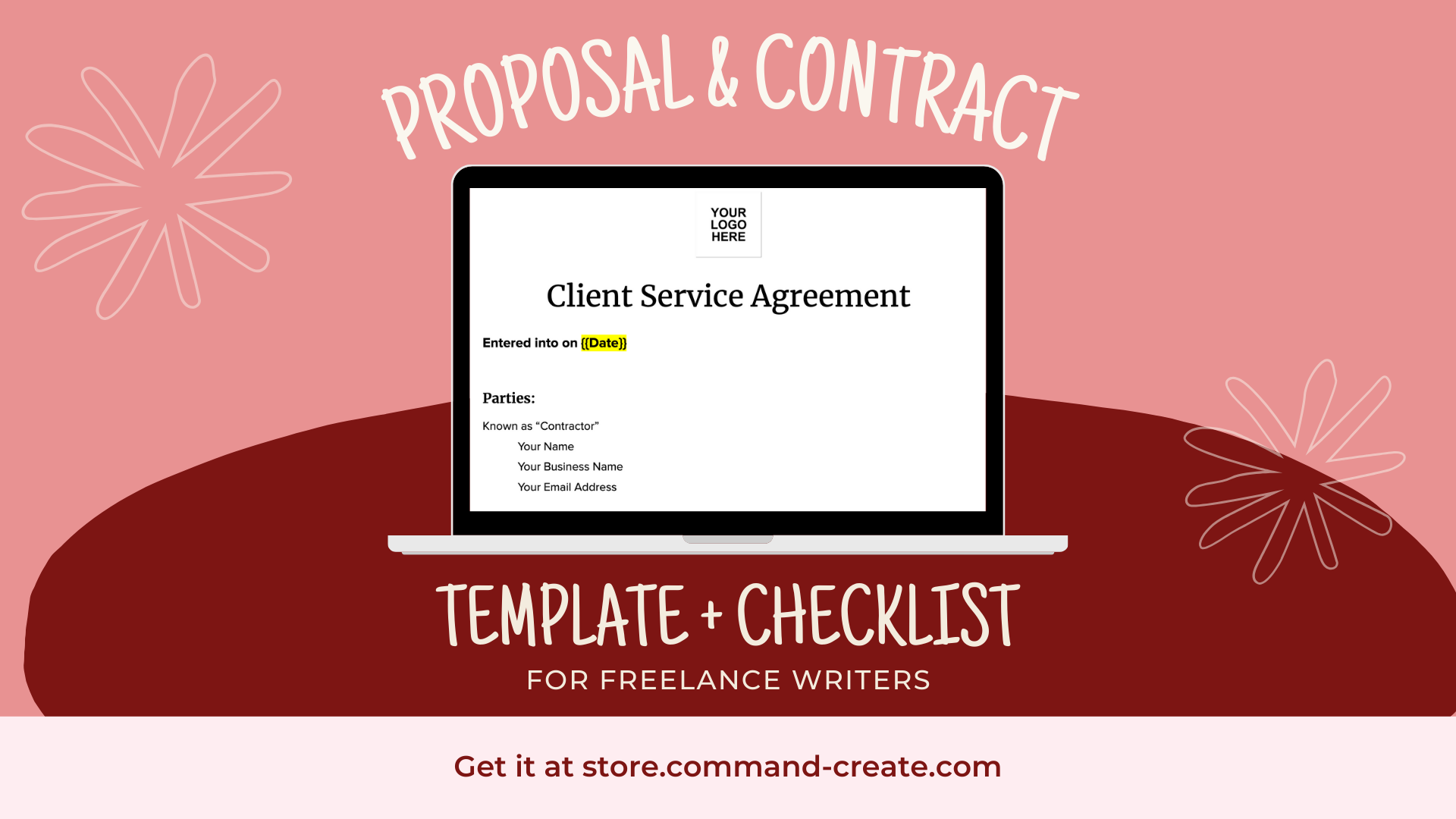Should You Ever Work Without a Contract?
Spoiler: No. But here’s how to handle it when you do.

Picture this: A dream client slides into your DMs with an urgent project. They needed it yesterday, the budget is perfect, and everything feels right — except they want to skip the contract to "speed things up." Your heart says yes, but your business sense is screaming no.
I'll be honest — in my two years of freelancing so far, I've only ever worked without a contract once. That one time was with an extremely reputable client (The Chronicle of Higher Education), the point of contact being an ex-colleague of mine. All I did was send over my W-9 and my invoice with net 30 terms. I figured it would work out — and it did!
However, I've personally always believed that those extra few minutes of paperwork are worth their weight in gold (and peace of mind). Call me paranoid, but every single project, whether it's a quick blog post or a months-long content strategy, gets the contract treatment from me.
But here's the thing — I know plenty of experienced freelancers who operate differently. They'll tell you that contracts add unnecessary friction to the client acquisition process. "As long as you have the agreement in writing," they say, "emails count as a contract anyway."
While I personally couldn't imagine working without that safety net, let's explore how to protect yourself if you ever find yourself in this situation.
Get it in writing
If you're going to skip a formal contract (which, again, I don't recommend), here's what you absolutely must have in writing:
- Scope of work with crystal-clear deliverables — "One blog post" isn't enough; spell out the word count, revisions, and deadline
- Payment terms including the exact amount, when it's due, and how you'll receive it
- Project timeline with specific milestones and delivery dates
- Usage rights and ownership transfer details
An email thread covering these points isn't ideal, but it's better than a verbal agreement and nothing else. Think of it as your makeshift contract — not perfect, but better than flying completely blind.
Create a paper trail
After every call or chat, send a follow-up email summarizing what was discussed and agreed upon. It might feel excessive, but this paper trail could save you if things go sideways. Keep screenshots of messages, save emails in a dedicated folder, and document everything.
Protect your payment
No contract? Then payment terms become even more critical. Consider these non-negotiables:
- Get a deposit upfront — at least 50%
- Use a professional invoicing system like Wave or QuickBooks
- Set clear payment milestones for larger projects
- Document all payment-related communications
Trust your gut
If a client is already pushing back on basic business practices before the work begins, take that as a preview of coming attractions. When they say things like:
- "We'll figure out the payment details later"
- "Don't worry about the specifics, we're easy to work with"
- "This is an unpaid test project to start, then we'll discuss rates"
- "Can you just start now and we'll sort out the details?"
Ruuuuuuun. Seriously. Pack up your laptop, grab your coffee, and sprint in the opposite direction.
Think of it this way — if someone's hesitant to discuss clear terms upfront, how eager do you think they'll be to pay you later? A quick payday isn't worth spending months sending follow-up emails that start with "Just checking in about that invoice..." or having lengthy discussions about why, no, actually, that wasn't included in the scope of work.
It’s about respecting your own time and expertise enough to insist on proper business practices. The right clients will appreciate this. The wrong ones? Well, they'll tell you exactly who they are by pushing back. Listen to them.
Quick contract > No contract
Look, I get it. When an exciting opportunity lands in your lap, the last thing you want to do is pump the brakes for paperwork. But drafting a contract doesn’t have to be a cumbersome task that takes all day.
Here's what I actually do when clients need something ASAP — I have a streamlined contract template ready to go. It takes me literally ten minutes to customize all the details in Google Docs and then send through PandaDoc.
You can check out the exact template I use (and a contract checklist) here:

If I ever found myself in a situation where I absolutely had to start work before a contract was signed, I'd make sure to have extraordinarily clear email documentation and get 50% payment upfront. But honestly? I'd rather lose a project than work without protection.
Disclaimer: This article is for informational purposes only and does not constitute legal advice. Consult a qualified attorney for advice tailored to your specific situation. The author is not responsible for actions taken based on this information.





